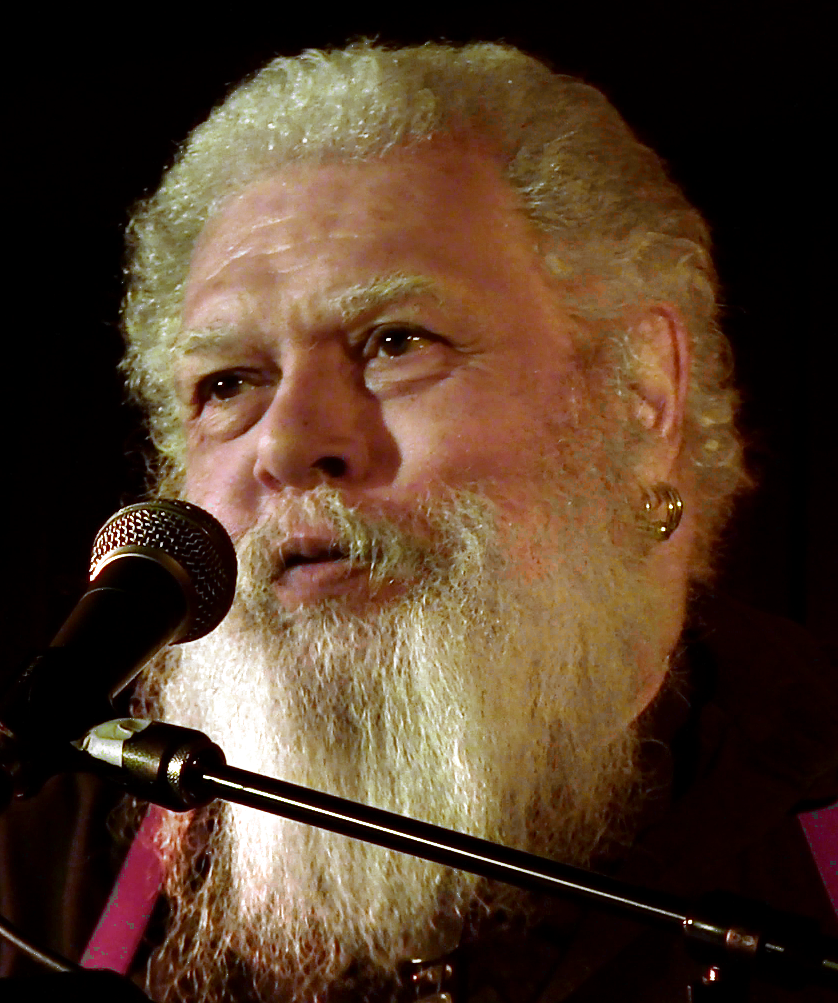Source: The Jewels of Aptor (1962), Chapter X (p. 133)
Context: A lesson which history should have taught us thousands of years ago was finally driven home. No man can wield absolute power over other men and still retain his own mind. For no matter how good his intentions are when he takes up the power, his alternate reason is that freedom, the freedom of other people and ultimately his own, terrifies him. Only a man afraid of freedom would want this power, who could conceive of wielding it. And that fear of freedom will turn him into a slave of this power.
Works

The Einstein Intersection
Samuel R. Delany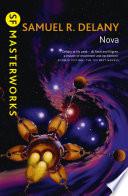
Nova
Samuel R. Delany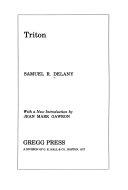
Triton
Samuel R. Delany
The Jewels of Aptor
Samuel R. Delany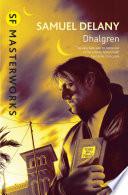
Dhalgren
Samuel R. Delany
The Mad Man
Samuel R. DelanyEquinox
Samuel R. Delany
They Fly at Çiron
Samuel R. Delany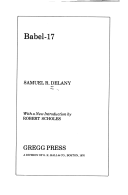
Babel-17
Samuel R. Delany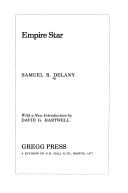
Empire Star
Samuel R. DelanyTime Considered as a Helix of Semi-Precious Stones
Samuel R. Delany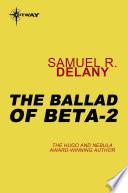
The Ballad of Beta-2
Samuel R. DelanyFamous Samuel R. Delany Quotes
Section 2
The Einstein Intersection (1967)
“All right. I’m not opposed to reality imitating art if it doesn’t get in the way.”
Source: Lines of Power (1968), p. 26
Source: About Writing: Seven Essays, Four Letters, and Five Interviews
Samuel R. Delany Quotes about the trip
Source: Tales of Nevèrÿon (1979), Chapter 5, “The Tale of Dragons and Dreamers” Section 1 (p. 214; ellipsis in the original)
Spoken Arts interview on WBFO 88.7, 20th April 2000.
Source: Neveryóna (1983), Chapter 5, “Of Matrons, Mornings, Motives, and Machinations” (p. 104)
“But it's always intriguing to discover the ways in which desire fuels the systems of the world.”
Source: The Mad Man (1994), p. 257
Samuel R. Delany Quotes about people
Section 2 (pp. 102-103)
Tales of Nevèrÿon (1979)
The Star Pit (1967)
Source: Neveryóna (1983), Chapter 5, “Of Matrons, Mornings, Motives, and Machinations” (p. 103; ellipsis represents a minor elision of description)
Source: The Jewels of Aptor (1962), Chapter X (p. 133)
Context: Dictators during the entire history of this planet have used similar techniques. By not letting the people of their country know what conditions existed outside their boundaries, they could get the people to fight to stay in those conditions. It was the old adage: Convince a slave that he’s free, and he will fight to maintain his slavery.
Samuel R. Delany: Trending quotes
Section 11
The Einstein Intersection (1967)
“That is the basis of all magic.”
Equinox (1973)
Context: Always remember the objects you are working with. When you make a bridge, remember you are putting steel on stone and dirt. … Some day you will write poems to a little girl: marks with ink on paper. … When you are making love, you are moving flesh against flesh. That is the basis of all magic. (p. 30)
“It is a magic book. Words mean things. When you put them together they speak.”
Equinox (1973)
Context: It is a magic book. Words mean things. When you put them together they speak. Yes, sometimes they flatten out and nothing they say is real, and that is one kind of magic. But sometimes a vision will rip up from them and shriek and clank wings clear as the sweat smudge on the paper under your thumb. And that is another kind. (p. 163)
Samuel R. Delany Quotes
“Always remember the objects you are working with.”
Equinox (1973)
Context: Always remember the objects you are working with. When you make a bridge, remember you are putting steel on stone and dirt. … Some day you will write poems to a little girl: marks with ink on paper. … When you are making love, you are moving flesh against flesh. That is the basis of all magic. (p. 30)
“Once I was as ignorant as you; I swear, though, I can’t remember when.”
Section 9
The Einstein Intersection (1967)
Context: I must remember my own origins. Once I was as ignorant as you; I swear, though, I can’t remember when.
Source: The Jewels of Aptor (1962), Chapter X (p. 133)
Context: A lesson which history should have taught us thousands of years ago was finally driven home. No man can wield absolute power over other men and still retain his own mind. For no matter how good his intentions are when he takes up the power, his alternate reason is that freedom, the freedom of other people and ultimately his own, terrifies him. Only a man afraid of freedom would want this power, who could conceive of wielding it. And that fear of freedom will turn him into a slave of this power.
“The science of probability gives mathematical expression to our ignorance, not to our wisdom.”
Time Considered as a Helix of Semi-Precious Stones (1968)
Context: If everything, everything were known, statistical estimates would be unnecessary. The science of probability gives mathematical expression to our ignorance, not to our wisdom.
Source: Neveryóna (1983), Chapter 8, “Of Models, Moonlight, Mystery, and Authority” (p. 199)
Section 13 (closing words)
The Einstein Intersection (1967)
Appendix B, “Acknowledgments” (p. 447)
Neveryóna (1983)
Source: The Mad Man (1994), p. 67; ellipses in the original
“In myths things always turn into their opposites as one version supersedes the next.”
Section 2
The Einstein Intersection (1967)
Source: Nova (1968), Chapter 5 (p. 156)
Section 3 (p. 179)
Tales of Nevèrÿon (1979)
Section 3 (p. 115)
Tales of Nevèrÿon (1979)
“You mean I’ve come all this way to kill a man, and you tell me he’s gone?”
Section 3 (p. 183)
Tales of Nevèrÿon (1979)
The Ballad of Beta-2 (1965)
Source: The Mad Man (1994), p. 279
Section 3 (p. 245; closing words)
Tales of Nevèrÿon (1979)
“She simply has no concept of what’s real and what’s fantasy—did I say? She’s in the theater.”
Source: Triton (1976), Chapter 7 “Tiresias Descending, or Trouble on Triton” (p. 322)
Section 9
The Einstein Intersection (1967)
“You're not looking for me, you know. I'm looking for you.”
Section 5
The Einstein Intersection (1967)
Source: Neveryóna (1983), Chapter 8, “Of Models, Moonlight, Mystery, and Authority” (p. 197)
Source: Triton (1976), Chapter 3 “Avoiding Kangaroos” (p. 113)
“Don’t go chattering to the stars if you’re going to do it with your eyes closed.”
Source: Nova (1968), Chapter 7 (p. 197)
Section 2 (p. 37)
Tales of Nevèrÿon (1979)
“For better or for worse, she found herself putting aside fear in favor of curiosity.”
Source: Neveryóna (1983), Chapter 7, “Of Commerce, Capital, Myths, and Missions” (p. 163)
Source: Neveryóna (1983), Chapter 3, “Of Markets, Maps, Cellars, and Cisterns” (p. 62)
Source: Neveryóna (1983), Chapter 3, “Of Markets, Maps, Cellars, and Cisterns” (p. 61)
Section 2
The Einstein Intersection (1967)
Source: Neveryóna (1983), Chapter 13, “Of Survival, Celebration, and Unlimited Semiosis” (p. 404)
Source: Neveryóna (1983), Chapter 7, “Of Commerce, Capital, Myths, and Missions” (p. 147)
Source: Equinox (1973), p. 60
Source: Neveryóna (1983), Chapter 12, “Of Models, Monsters, Night, and the Numinous” (p. 365)
Source: Neveryóna (1983), Chapter 12, “Of Models, Monsters, Night, and the Numinous” (p. 358)
Section 2
The Einstein Intersection (1967)
Source: Triton (1976), Chapter 6 “Objective Knowledge” (p. 266)
“And who’s to say where life ceases and theater begins”
Source: Triton (1976), Chapter 3 “Avoiding Kangaroos” (p. 113)
Part VII, "The Anathēmata" (p. 801)
Dhalgren (1975)
Source: Nova (1968), Chapter 2 (p. 26)
“The inevitable is that unprepared for.”
Source: Nova (1968), Chapter 7 (p. 204)
Section 3 (p. 114)
Tales of Nevèrÿon (1979)
The Star Pit (1967)
The Rhetoric of Sex, The Discourse of Desire
Source: Tales of Nevèrÿon (1979), Chapter 2, “The Tale of Old Venn” Section 1 (p. 76)
Source: Tales of Nevèrÿon (1979), Section 4 (p. 192)
“To write for others,’ she thought, ‘it seems one must be a spy—or a teller of tales.”
Source: Neveryóna (1983), Chapter 11, “Of Family Gatherings, Grammatology, More Models, and More Mysteries” (p. 313)
“You can be bored with anything if you try hard enough.”
Source: Nova (1968), Chapter 3 (p. 36)
Source: Neveryóna (1983), Chapter 7, “Of Commerce, Capital, Myths, and Missions” (p. 147)
“Everyone in a position of authority is hysterical, and everyone else is pretending to be asleep.”
Source: Triton (1976), Chapter 3 “Avoiding Kangaroos” (p. 54)
